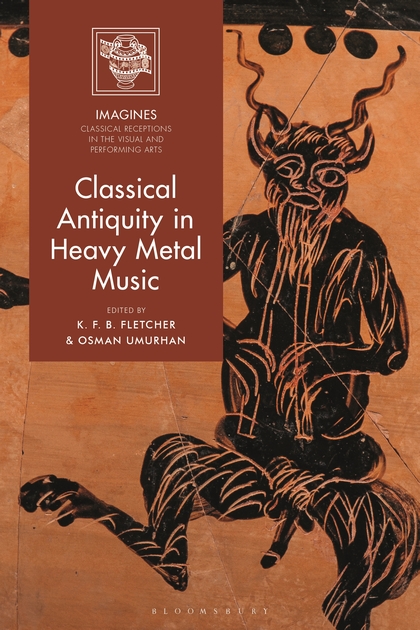Classical Antiquity in Heavy Metal Music
Bloomsbury Academic
 Examining the connection between modern phenomena and antique times, Bloomsbury Academic’s book series offers in-depth insights on the origin of what we while our time away with during these Coptic times.
Examining the connection between modern phenomena and antique times, Bloomsbury Academic’s book series offers in-depth insights on the origin of what we while our time away with during these Coptic times.
In this case, a whole instalment is dedicated to marrying the study of heavy metal music with the classics, a focus which for aficionados of the genre, i.e. true metalheads, should be more obvious than for the scholars that would form the target audience for the elaborations.
Now, I have read a fair share of academic treatises on “extreme” music and while there is sometimes an interesting thought to be found, more often than not justifications are weaved in as if excuses are mandatory given the seriousness that is dedicated to a seemingly mundane and unacademic subject matter.
Refreshingly, this is not the case here and instead time is invested in creating common ground through the introductory chapter to then venture on to succinctly elaborate on the authors’ understanding of both the classics of antiquity and the protagonists of heavy metal.
Things get particularly interesting when geo-historical aspects are zeroed in on as well as gender norms and concepts of identity, which is when one feels like revisiting some albums to discover new aspects by tackling the music and lyrical emissions from a new angle, e.g. the oeuvre of Nile and a range of Scandinavian bands.
Needless to say, both antiquity and heavy metal are wide fields and only aspects can be examined thoroughly. While this could mean that selections are overly subjective, it is testament to the academics at the helm of the operation that the examples they pick allow for their deductions to be universally applicable to other contexts.
It goes without saying that the examinations do pay less attention to what the respective bands are trying to convey at face value level, as going beneath is where things get interesting.
A well-researched, academic yet engaging and thoughtful volume, which comes with a recommended playlist for students lucky enough to have a professor to teach this subject as part of Roman and Greek History university level courses.